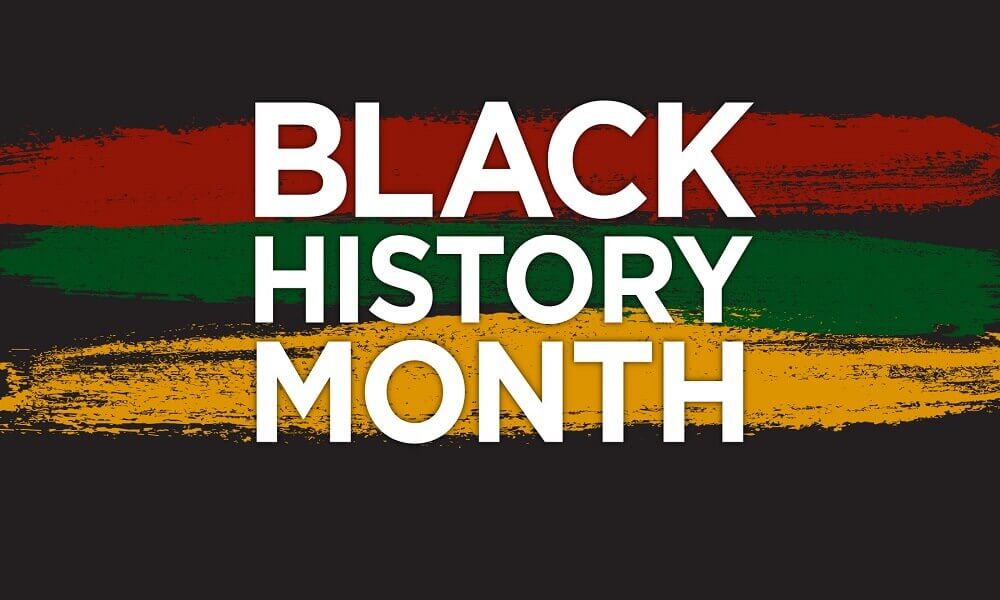How to Extend Your Celebration of Black History Month Throughout the Year
February is Black History Month — the annual celebration of Black achievement and a time for recognizing their central role in U.S. history. This federally…
February is Black History Month — the annual celebration of Black achievement and a time for recognizing their central role in U.S. history. This federally recognized event is a time for you to embrace and honor Black history and Black communities. However, it can be celebrated throughout the year. Here are some ways to do just that:

First off, understand the origins
The concept of celebrating and honoring Black history was initiated in 1926, with Negro History Week after Carter G. Woodson lobbied to have Black history and achievements acknowledged[LN(ANC1] . Woodson was the son of two enslaved people and became an author, historian, and the second African American to earn a Ph.D. at Harvard University. He founded the Association for the Study of Negro Life and History, now called the Association for the Study of African American Life and History (ASALH). Woodson and the ASALH launched the week with the intention of bringing focused study on Black History and attention to Black culture and literature within schools year-round, and to demonstrate what the students had learned during the week.
While many joked about selecting the month with the fewest number of days, this was completely intentional. The week was chosen to coincide with the birthdays of Frederick Douglass and President Lincoln, two Americans who played a great role in shaping Black history within this nation. Additionally, February 1st is National Freedom Day, the anniversary of the 13th Amendment. In 1976, President Gerald Ford expanded the week into Black History Month during the height of the civil rights movement. Since then, the acknowledgment and celebration of Black history has evolved and changed but still stays true to Woodson’s vision.
Delve into this year’s theme
This year’s theme is “Black History Black Family: Representation, Identity, and Diversity”. To make this year’s Black History Month unique and significant think about aspects specific to the theme. Here are some things to consider:
- Who is a part of the families of the heroes you typically learn about within Black History?
- How are Black families represented in historical narratives?
- What identities, experiences, and stories are missing?
Learn about black history beyond what you learned in school and learn about lesser-known significant black figures
Grade school classrooms have traditionally taught Black history limited to enslavement in the US colonies, and the Civil Rights Era, while highlighting achievements from only Harriet Tubman, Frederick Douglass, MLK, and Rosa Parks. These individuals can’t encompass this nation’s entire Black history. The way Black history curriculum is taught across the country removes humanity and erases the names of many who deserve to be mentioned in the textbooks. Black history is American history and should be taught as such — not a separate entity. Despite having missed the opportunity to learn the richness of Black history, you have access to so much via the internet. A few events and people to start you off include, but are not limited to:
Nat Turner’s Revolt, The Harlem Renaissance, Red Lining/ The Fair Housing Act, Little Rock Integration, Million Man March, Shirley Chisholm, Dr. Valarie Thomas, Gladys West, W.E.B DuBois, Marsha P. Johnson, Madame CJ Walker, Lisa Gelobter, Janet Collins, Jane Bolin, Sidney Poitier, Amelia Boynton Robinson, Dorothy Height, Eric Holder Jr., Charlotte E. Ray, Booker T Washington, Ester Jones, Bass Reeves, Bayard Rustin, Jesse Ownes, Bessie Coleman, Robert Sengstacke, Henrietta Lacks, Dr. Rebecca Lee Crumpler and Claudette Colvin
Read and share books by Black authors
One of the easiest ways to expand your knowledge of Black history is to pick up a good book! Take some time to read up on Black achievement, the history of systemic racism present in our nation, how it affects the Black community, and how the Black community has fought against it. Don’t forget to expand your reading list to a variety of genres And make sure to buy your books from Black-owned bookstores. Fortunately, many have transitioned online as a result of the pandemic, so you can order from anywhere!
Support Black-owned local businesses
Many Black-owned businesses still face unique issues mainly rooted in the systemic racism this country was built on. Becoming a customer and giving these companies supports their longevity, ability to grow, and ultimately helps close the prevalent racial wealth gap.
Consume content made by Black creators
Another great way to interact with and learn Black stories is by watching TV shows and movies by Black creators. Streaming services have made it easy by adding Black History Month filters, so start binging! The lack of acknowledgment from awards shows and mainstream media is not a true reflection of the quality of entertainment made by Black creators, and merely reflects the lack of diversity of Hollywood. It’s important to take on diversifying your “to-watch” list, so give TV shows and movies by Black creators the love they deserve.
Engage with Black influencers on social media
Perhaps you aren’t much of a fan of long-form storytelling and prefer getting your daily content from social media. While a relatively new way to get a message across, social media plays a huge role in shaping our society and the way we view our world. Diversify your feed and amplify the presence of black influencers on Instagram, Twitter, and TikTok.
Support Black Artists
History has disproportionately highlighted the art of white people, despite the talent and artistry that has come from Black communities. Take it upon yourself to diversify the art you consume. Buy a piece of art by a Black artist, attend a virtual art gallery celebrating Black art, attend a virtual performance by a Black poet, actor, or singer, or donate to a nonprofit that uplifts the arts from Black communities. Etsy and Society 6 have made finding Black artists super easy by creating specific sections on their websites dedicated to Black History Month.

Visit museums virtually
Museums are a great way to immerse yourself in history amongst artifacts, art, and information. It might not be the best time to visit your favorite museum, but plenty of museums have created online platforms to allow you to celebrate Black culture from your home. Take a virtual tour to learn something new!
Attend Black History Month virtual events
While we may be stuck inside this year, many events have switched to an online format, making it even easier to attend — especially those outside of your area! Whether you are looking to learn something new, prove your knowledge in some trivia, or even get active there is something for everyone. To find an event that piques your interest check out the NAACP’S website and your city or state’s website for listings.
Sign up to receive news from a Black organization
Just as within history, news coverage can overlook significant Black stories. By subscribing to a Black news site, you are giving a voice to Black journalists and uncovering information about the current events you may have otherwise missed. Additionally, subscribe to Black activists on Patreon to learn more about the Black experience and amplify the impact of the Black community.
Donate to charities that support anti-racist work
There are so many foundations that actively fight against racism and promote black rights, health, education, and community development all year long. Consider donating to one or many of the organizations that take action to support and uplift Black lives.
Encourage your boss or workplace to participate in diversity and inclusion training
While many workforces have made efforts to improve diversity and inclusion in the workplace environment within recent years, there is still a long way to go. With specific diversity training and awareness regarding cultural competency, unconscious biases are diminished, and workplace sensitivity is raised. An acknowledgment and commitment to diversity and inclusion from management levels is one of the first steps necessary to ensure underrepresented groups feel respected and have equal opportunities for advancement into leadership roles. After the training, hold your workplace accountable for the actions they committed to internally and in the content they promote.
Become a bone marrow donor
Those in need of bone marrow are matched with available donors based on a variety of factors, including ethnicity. In recent years, the number of Black bone marrow donors has been reported as too low. Black people seeking a bone marrow transplant have a 23 percent chance of finding a donor, compared to 77 percent for white people. Becoming a bone marrow donor would vastly improve the quality of life for those in need and could even save a life.
Continue following COVID-19 protocols
Black lives have been disproportionately affected by the COVID-19 outbreak. Sheltering in place, social distancing, and wearing your mask while out in public all help the Black community stay safe and healthier.
Call out racism in your community and educate those around you
We are no longer allowing ignorance to be an excuse! Use your voice to call out those that use harmful and offensive language and take a stand against those that promote negative stereotypes. Share your awareness with those around you so that we can foster a more accepting and positive society. While it is important to hold those around you accountable, be conscious to not be so anxious to get woke that you leave behind those who haven’t learned as quickly and cancel them. It’s important to know how to surround yourself with supportive and inclusive people, creating a bubble isn’t going to help anyone. Use the knowledge you have gained and share it with those around you, and you might learn something too.
Take a year-round approach
Black lives don’t matter only during February, and Black history doesn’t stop being important on March 1st. While an emphasis can be placed on the significance of Black history and culture during the month of February, it is done so with the intention of bringing the appropriate amount of attention during the rest of the year, which it historically and currently has not and does not receive. Making these changes in your own life will inspire those around you and will work towards a better future.
Written by Courtney Adema
Disclaimer: The views, opinions and positions expressed by the authors and those providing comments, opinions on this website are theirs alone, and do not necessarily reflect the views, opinions or positions of M-Lifestyle and their affiliates. M-Lifestyle does not claim ownership of any images used, unless otherwise specified.
![]()






